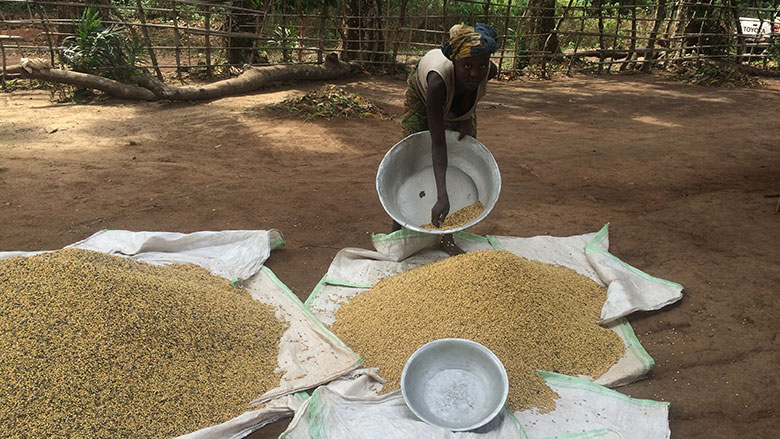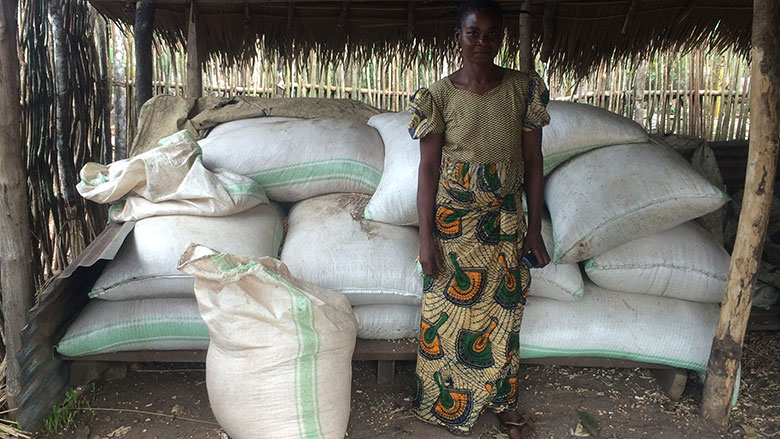To achieve this, the program provides beneficiaries with quality agricultural inputs, trains them in new technologies, and proposes methods of conserving and selling products after their harvest to facilitate marketing (product bundling, formalization of the cooperation framework between producers and transporters, etc.). The impact of these various initiatives is already noticeable, with a significant increase in producers' revenues in the three provinces targeted.
Alfred Kibangula Asoyo, the national project coordinator, believes that building appropriate infrastructure (rural roads, warehouses, and markets) has helped revitalize agricultural production and improve marketing. "These various works now connect production basins to major consumer markets, while facilitating the delivery of agricultural products. Today, we can observe a steady increase in the revenues of small producers, who are usually grouped into associations with self-managed village banks," he affirmed.
The proliferation of these savings banks reflects the rapid growth of local economic activity and the resumption of monetary exchange in the region. This has, by extension, improved food security, children's education, and the well-being of households across the entire project intervention zone.
Unity is strength
Sarah Fatuma, President of the TOSUNGANA association, believes that above all, this project has contributed to uniting and empowering women in this province. "Prior to project implementation, each of us worked independently. However, since the ARRSP taught us how to collaborate, we work together to achieve our goals. We now grow crops together, harvest together, store products in a common warehouse, and sell them together. The revenue is placed in a self-managed village bank," she explains. The results of this new method of operating are impressive. Structured and organized, women belonging to the association are stronger and can hire labor from among the other female members of the organization. Their duties are well distributed. Some work in the fields, others handle bundling and the promotion of agricultural products. Still others are assigned to the management and maintenance of the village warehouse built by the project (with their financial participation), while many are involved in cassava processing using the training and equipment that they have received.
When he visits the new fields throughout the provinces targeted by the ARRSP project, which stretch as far as the eye can see, Amadou Oumar Ba, Senior Agricultural Specialist at the World Bank office in DRC, is encouraged the results and the visible impact. Since the project's implementation in 2011, 106,922 households, 40% of which are headed by women, have benefited. It has also rehabilitated 2,269 kilometers of rural roads, built four markets and 16 warehouses with a capacity of 50 to 80 metric tons each to store products and deliver them from production zones to consumption centers. All of these facilities have enabled access for thousands of villages and have improved the packaging, storage, and sale of agricultural products. "I am reassured," says Ba. "When we finance agriculture, we benefit 75% of the country’s poor and fully honor the mission of the World Bank, which is to reduce poverty and promote economic growth that benefits all citizens."


